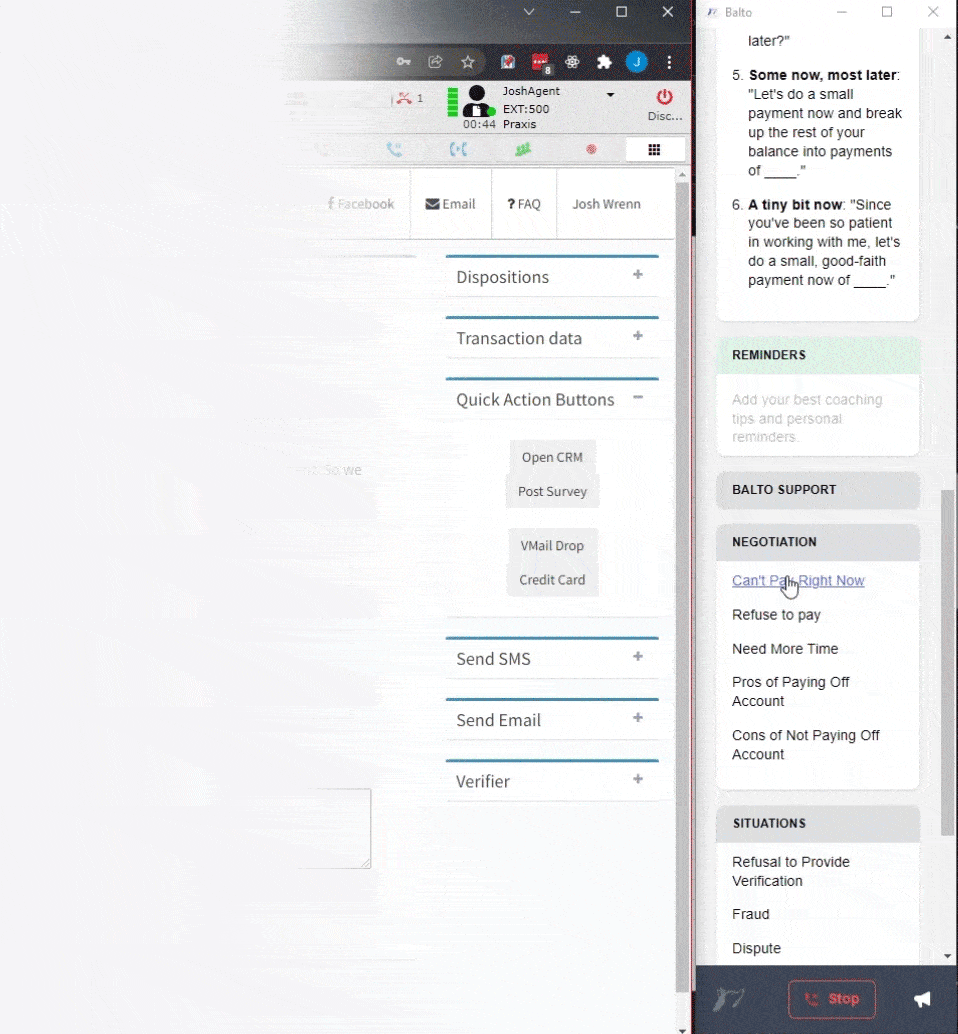AI-based call centers are revolutionizing how businesses interact with their customers. The customer service you provide will either make or break your brand. From improving response times to personalizing interactions, artificial intelligence is now setting new standards in customer service efficiency and effectiveness.
An AI-based call center utilizes artificial intelligence technologies to manage and improve customer interactions. The integration of AI in call centers is transforming traditional approaches, allowing for more effective communication channels and operational efficiencies.
In this day and age, the role of AI in enhancing customer service is crucial. AI technologies not only streamline operations but also elevate the customer experience by offering quicker, more accurate responses and personalized service, setting new standards in customer satisfaction.
Understanding AI in Call Centers
Artificial Intelligence in call centers refers to the simulation of human intelligence in machines that are programmed to think like humans and mimic their actions. The relevance of AI in call centers is significant as it automates and improves customer service tasks that were traditionally performed by humans.
The development of AI in customer service began with simple automated systems and has evolved into sophisticated AI solutions capable of handling complex queries with a human-like understanding. This evolution has been driven by advancements in machine learning, natural language processing, and big data analytics.
Benefits of AI in Call Centers
AI is transforming call center operations across various fronts. It enhances the efficiency and effectiveness of the services provided and improves the working conditions for agents and satisfaction for customers. Here’s a more detailed look at each benefit:
Enhancing Response Times and Customer Satisfaction
AI-driven call centers utilize technologies such as chatbots and automated voice systems to handle routine customer queries instantly. This immediate responsiveness ensures that customers do not have to endure long waiting times, thereby enhancing their overall satisfaction. Moreover, AI can quickly sift through vast databases to provide accurate information or escalate complex issues to human agents, ensuring that each customer receives the attention they need promptly.
Reducing Human Error and Improving Efficiency
By automating repetitive and routine tasks, AI minimizes the chances of human error, such as data entry mistakes or overlooking customer information. This automation not only boosts the efficiency of the call center operations but also allows human agents to focus on handling more complex queries and issues that require human empathy and judgement, thus better utilizing their skills and expertise.
Personalization of Customer Interactions
AI systems analyze customer data, including past interactions, preferences, and behaviors, to tailor the communication to individual needs. This personalized approach makes customers feel recognized and valued, which can enhance loyalty and satisfaction. For example, AI can suggest customized product recommendations or service adjustments that meet the individual’s unique requirements.
Improving Agent Efficiency
AI supports agents by providing them with real-time information and actionable insights during their interactions. This might include displaying customer purchase history, suggesting solutions based on similar past incidents, or even offering real-time coaching tips during customer calls. This support helps agents resolve issues more effectively and efficiently, boosting their productivity and job satisfaction.
Enhancing Customer Experience
AI contributes to a seamless customer experience by ensuring that interactions are timely, relevant, and effective. With capabilities like sentiment analysis, AI can detect customer moods and adjust interactions accordingly, ensuring that the customer feels heard and understood throughout their journey. This level of attentiveness can significantly improve the overall customer experience.
Reducing Costs
AI technologies reduce operational costs by automating a large volume of routine interactions that would otherwise require human intervention. Additionally, AI can optimize the allocation of tasks based on complexity and urgency, ensuring that resources are utilized more efficiently, which can result in cost savings in terms of labor and time.
Providing Real-Time Customer Insights
AI tools process and analyze vast amounts of data in real-time, providing call centers with immediate insights into customer behaviors and trends. These insights can inform strategic decisions, from adjusting service delivery to enhancing product offerings. Real-time analytics also enable managers to make informed decisions swiftly, adapting to customer needs dynamically.
Lowering Agent Turnover
The automation of mundane and repetitive tasks not only helps in reducing the workload on human agents but also in making their job roles more engaging and less stressful. This enhancement in job satisfaction can significantly reduce turnover rates, as agents are less likely to experience burnout and more likely to find their roles rewarding.
Industry and Regulatory Compliance: Balto’s Role
Balto, a prominent partner of NobelBiz, plays a critical role in ensuring that call center interactions adhere to industry standards and regulations. Balto’s real-time guidance platform uses AI to monitor conversations and prompt agents with the correct compliance language during calls. This not only helps in reducing the risk of legal issues but also assures customers that their interactions are handled professionally and ethically. Balto’s technology is particularly important in industries with stringent regulatory requirements, such as finance and healthcare, where compliance is closely scrutinized.

Key AI Technologies Used in Call Centers
AI technologies play a pivotal role in modernizing call centers, enhancing both customer interactions and operational efficiencies. Here’s an expanded overview of the key AI technologies and the role of Balto in ensuring industry compliance:
Machine Learning: Predicting Customer Behavior
Machine learning algorithms analyze historical data to predict future customer behaviors and preferences. This technology enables call centers to anticipate customer needs and tailor interactions accordingly, improving the relevance and timeliness of the communications. For instance, machine learning can identify when a customer might be likely to purchase a product or require support, allowing preemptive action to enhance satisfaction.
Predictive Analytics
This technology leverages data, statistical algorithms, and machine learning techniques to identify the likelihood of future outcomes based on historical data. Predictive analytics can forecast customer needs, potential churn rates, and other vital metrics, enabling call centers to proactively address issues and optimize customer retention strategies.
Automated Voice Systems
Automated voice systems use sophisticated algorithms to interact with customers using natural, conversational language. These systems improve the accessibility of services by providing 24/7 support and reducing the need for customers to wait for live agents. They are also efficient in managing high volumes of calls, ensuring that customers receive immediate responses to their inquiries.
Intelligent Product Recommendations
AI-driven product recommendation systems analyze customer data such as previous purchases, browsing history, and search queries to suggest relevant products or services. These recommendations are highly personalized, increasing the likelihood of conversion by presenting customers with options that resonate with their specific preferences and needs.
Virtual Agents and Chatbots
Virtual agents and chatbots handle routine inquiries such as billing questions, account updates, and simple technical support, freeing up human agents to focus on more complex and sensitive issues. These AI tools are instrumental in streamlining operations and improving the efficiency of the call center by reducing the workload on human staff.
Natural Language Processing (NLP)
NLP technology enables machines to understand and interpret human language as it is spoken or typed. This capability enhances the effectiveness of communication between AI systems and customers, ensuring that interactions are more natural and engaging. NLP is crucial for improving the accuracy of voice systems and chatbots in understanding and responding to customer queries.
Brayan Carpio
Implementing AI in Your Call Center
To integrate AI in call centers, businesses should follow these steps:
- Initial Steps: Identify the specific needs of your call center and choose appropriate AI technologies.
- Training Staff: Equip your team with the necessary skills to work alongside AI systems effectively.
- Infrastructure: Invest in the necessary hardware and software to support AI technologies.
- Monitoring and Evaluation: Regularly assess the performance of AI systems to ensure they meet your service goals.
Challenges and Considerations regarding implementation
So what are some challenges contact centers may have in implementing AI?
1. Addressing Privacy and Security Concerns
Privacy and security are crucial when handling customer data in AI-enhanced call centers. Implementing strong cybersecurity measures, adhering to data protection regulations, and conducting regular security audits are vital steps to safeguard sensitive information and maintain customer trust.
2. Overcoming Customer Resistance to AI Service
Many customers prefer human interaction over AI. To address this, call centers can enhance AI systems with advanced natural language processing to ensure interactions are smooth and human-like. Transparency about the use of AI and providing an easy option to switch to human agents can also help mitigate resistance.
3. Cost Implications and ROI Analysis
The initial investment in AI technology can be substantial. Organizations should conduct a detailed ROI analysis to justify the costs, considering both direct financial benefits and indirect advantages like improved customer satisfaction and competitive edge.
4. Legal and Ethical Considerations
The deployment of AI in call centers must navigate legal and ethical issues, including compliance with data protection laws, addressing potential job displacement ethically, and managing biases in AI algorithms. Continuous monitoring and updates are essential to ensure fairness and adherence to evolving legal standards.
The Future of AI in Call Centers
As AI technology continues to advance, its impact on call centers is evolving from an emerging trend to a core component of customer service strategy. Here’s a closer look at the key trends shaping the future of AI in call centers:
“The future of AI in call centers is not just about automating tasks, but about transforming customer interactions into hyper-personalized, seamless experiences that predict needs and solve problems before they even arise. As we look forward, AI will not just support human agents; it will empower them to deliver unprecedented levels of customer satisfaction.”– Christian Montes, Executive Vice President of Client Operations @NobelBiz
Emerging Trends: Advancements in AI Technologies
AI technologies are set to further transform customer service operations through several emerging trends:
- Omnichannel Integration: As customer preferences shift away from traditional phone calls to include various digital channels like live chat, social media, and email, AI is critical in integrating these channels to provide a seamless customer experience. AI helps ensure consistency across channels, allowing customers to switch between them without losing context or history.
- Hyper-personalization: Leveraging AI, call centers can now offer personalized experiences to customers by analyzing their behavior, preferences, and previous interactions. This level of personalization can enhance customer satisfaction and loyalty, as interactions are tailored to meet individual needs.
- AI-driven Quality Assurance: AI technologies are revolutionizing quality assurance in call centers. By continuously analyzing customer interactions, AI can identify trends and provide real-time feedback to agents, helping them improve their performance immediately. This approach ensures high-quality service and helps call centers adhere to regulatory standards.
AI in call centers represents a substantial shift towards more efficient, personalized, and insightful customer service practices. As technology continues to evolve, so too will the capabilities of AI to transform the call center landscape. The integration of AI is becoming indispensable for companies that want to remain competitive in a customer-centric business environment.
By integrating the Balto AI-powered guidance for agents, NobelBiz takes a step further in perfecting one of the best contact center solutions on the market. The joint efforts on both sides resulted in a working environment where agents are more efficient, make fewer mistakes and convert more. Discover how Nobelbiz can have a transformative impact on your contact center by requesting a demo today, and see how we can help optimize your operations for your business success.

Michael McGuire is a contact center industry expert with almost two decades of experience in the space. His experience includes roles as Director of Contact Center Digital Transformation at NobelBiz, and as Director of Operations at FLS Connect, managing multiple call centers. As President of Anomaly Squared and Targeted Metrics, Michael successfully transitioned companies into remote operations and significantly boosted revenues. With a strong background in customer service, leadership, strategic planning, and operations management, Michael excels in driving growth and innovation in the call center space.
Mike is also a proud Board Member for R.E.A.C.H Trade Group, promoting consumer protection and satisfaction and Co-host of the Off Skripted Podcast – a show about Life, Call Centers and everything in between.




 “The future of AI in call centers is not just about automating tasks, but about transforming customer interactions into hyper-personalized, seamless experiences that predict needs and solve problems before they even arise. As we look forward, AI will not just support human agents; it will empower them to deliver unprecedented levels of customer satisfaction.”– Christian Montes, Executive Vice President of Client Operations @NobelBiz
“The future of AI in call centers is not just about automating tasks, but about transforming customer interactions into hyper-personalized, seamless experiences that predict needs and solve problems before they even arise. As we look forward, AI will not just support human agents; it will empower them to deliver unprecedented levels of customer satisfaction.”– Christian Montes, Executive Vice President of Client Operations @NobelBiz



